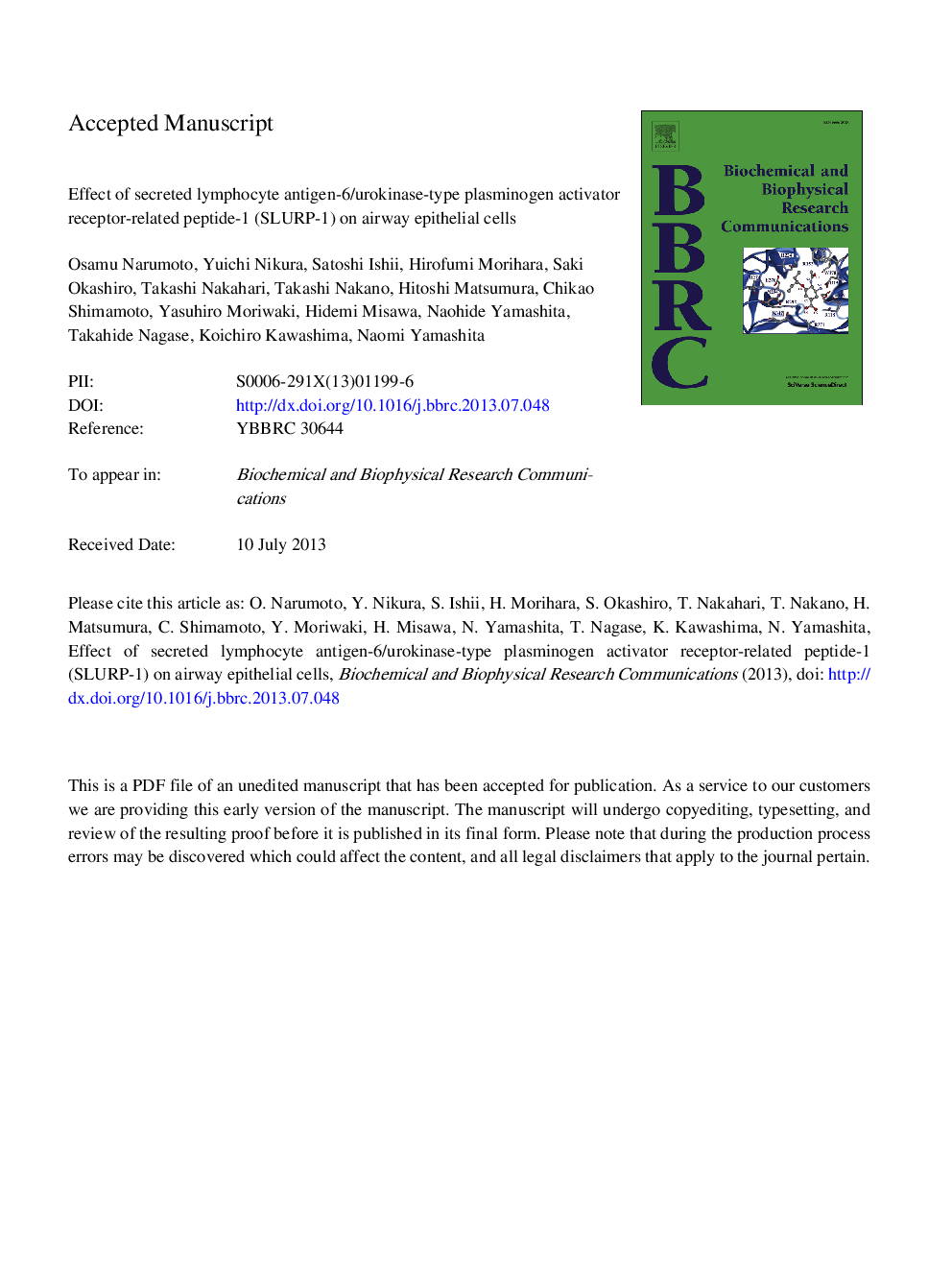| Article ID | Journal | Published Year | Pages | File Type |
|---|---|---|---|---|
| 10758484 | Biochemical and Biophysical Research Communications | 2013 | 25 Pages |
Abstract
Acetylcholine (ACh) exerts various anti-inflammatory effects through α7 nicotinic ACh receptors (nAChRs). We have previously shown that secreted lymphocyte antigen-6/urokinase-type plasminogen activator receptor-related peptide-1 (SLURP-1), a positive allosteric modulator of α7 nAChR signaling, is down-regulated both in an animal model of asthma and in human epithelial cells treated with an inflammatory cytokine related to asthma. Our aim of this study was to explore the effect of SLURP-1, signal through α7 nAChR, in the pathophysiology of airway inflammation. Cytokine production was examined using human epithelial cells. Ciliary beat frequency of murine trachea was measured using a high speed camera. The IL-6 and TNF-α production by human epithelial cells was augmented by siRNA of SLURP-1 and α7 nicotinic ACh receptor. The cytokine production was also dose-dependently suppressed by human recombinant SLURP-1 (rSLURP-1). The ciliary beat frequency and amplitude of murine epithelial cells were augmented by PNU282987, a selective α7 nAChR agonist. Those findings suggested that SLURP-1 and stimulus through α7 nicotinic ACh receptors actively controlled asthmatic condition by stimulating ciliary beating and also by suppressing airway inflammation.
Keywords
Related Topics
Life Sciences
Biochemistry, Genetics and Molecular Biology
Biochemistry
Authors
Osamu Narumoto, Yuichi Niikura, Satoshi Ishii, Hirofumi Morihara, Saki Okashiro, Takashi Nakahari, Takashi Nakano, Hitoshi Matsumura, Chikao Shimamoto, Yasuhiro Moriwaki, Hidemi Misawa, Naohide Yamashita, Takahide Nagase, Koichiro Kawashima,
